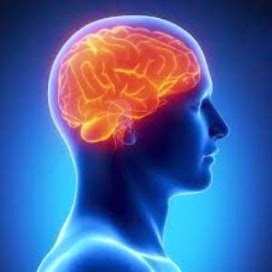What is short term memory?
Short term memory is the memory that holds information for a short period. This can vary between a few seconds to a few minutes. Moreover, it may contain a limited amount of information. Someone who is trying to remember a new phone number, this will probably be forgotten if he is equally distracted by something or someone else.
Extent and duration of the short term memory
In a famous article by psychologist George Miller asserts that the short term memory capacity could include approximately seven elements. This principle applied to any type of material to be remembered: letters, numbers or words. Miller called this principle: the span of immediate memory (span of immediate memory). For example the series RSKHWXLPP only RSKHWXL remember.
Another well-known phenomenon in the psychology of memory is the recency effect. If people have to memorize a list of new combinations of letters, and they get no opportunity to repeat the information, the latest items from the list of best remembered. Petersen and Petersen discovered in another study that the test subjects after 30 seconds had only 10% memorizing meaningless consonants (e.g., XCJ) as they are in the interval between the presentation of this material, and the time of reproduction had to perform a computing task, which prevented that they repeated material. After 3 seconds, however, they found ways to reproduce 70%. These studies advocated the idea that information in short term memory after a while automatically "blurs" or "sinks".
Theories
There are different views about the nature or operation of short term memory.
A well-known theory Atkinson and Shiffrin of those who regarded it as a short term memory stage, or temporary storage of new information which the attention is directed. If information from the senses but long enough is being held (eg by repetition), takes place automatically transport to long-term memory. If it does not find a decay (decay) instead of the temporarily stored information. However, there is also evidence that neurological patients with a faulty short term memory may be possible to store information in long-term memory (also the reverse image occurs, such as patient HM). Apparently storage in the vestibule of short term memory, as described by Atkinson and Shiffrin not always required to store information in long-term memory. However, neuropsychology has indeed demonstrated that the processes of short- and long-term memory are several mechanisms in the brains basis.
Craik and Lockhart showed that superficial processing of words (watch purely external characteristics) led to worse remember, then deep processing (pay attention to meaning) of words. Their theory of processing levels not only states that hold a question of remembering long enough in the short term memory. Remember also to create codes allowing easier beaten a bridge to previously acquired knowledge.
The short term memory can also be taken as working memory. The concept of memory has broader implications. It can first of all, retain new information that comes from the senses is for a while (such as at the stage of model Atkinson and Shiffrin). It can also contain old information stored in long-term memory, but being temporarily "from within" activated, such as a picture of a former vacation that we pick ourselves' for the mind. We can also temporarily store numbers in the memory to "join" anything like that dial a telephone number or perform a calculation. Processes in the working memory are not passive, but are controlled by active control mechanisms in the conscious brains. There are indications that there are two types of short term memory (or RAM) exist, especially significant verbal memory (for example, memorizing spoken numbers, letters or words) and visual-spatial working memory (eg, remembering or imagining figures).
- Short term memory as activation of neural representations
Short term memory can be seen as a temporary activation of the same networks in the brain that are involved in the long-term memory. In the long-term memory are the stored here representations (for example, representations, images, notions) however in passive state. According to this theory, which is defended by Joachim Fuster is the distinction between short-and long-term memory especially functional in nature, that is determined by the condition in which our brains are. This theory also seems good to fit in with the theory of working memory.
- Disorders of the short term memory.
Impaired short term memory sometimes prove to be specific to the type of material to be remembered. One patient has difficulty for a short time remembering visual-spatial representations (zoal figures or faces), the other with having to remember or repeat a list of spoken words or names.
General
In the above examples, short term memory is working within the maximum period in which our conscious attention is focused on something. It stops when you go to bed and start working when one wakes up. New consciously perceived perceptions are processed and from long-term memory also interferes information, which is to develop new thought processes. When one person's short term memory will comprise less time than the other person. For example, if a new phone is dictated can this ten seconds to several minutes to remember. Several hours or days later, one will have forgotten this. Only through concentration, repetition, associations, scribbles something similar can achieve long-term memory. Influences such as stress, drugs, medications, alcohol, and power supply may have an influence on the short term memory.

